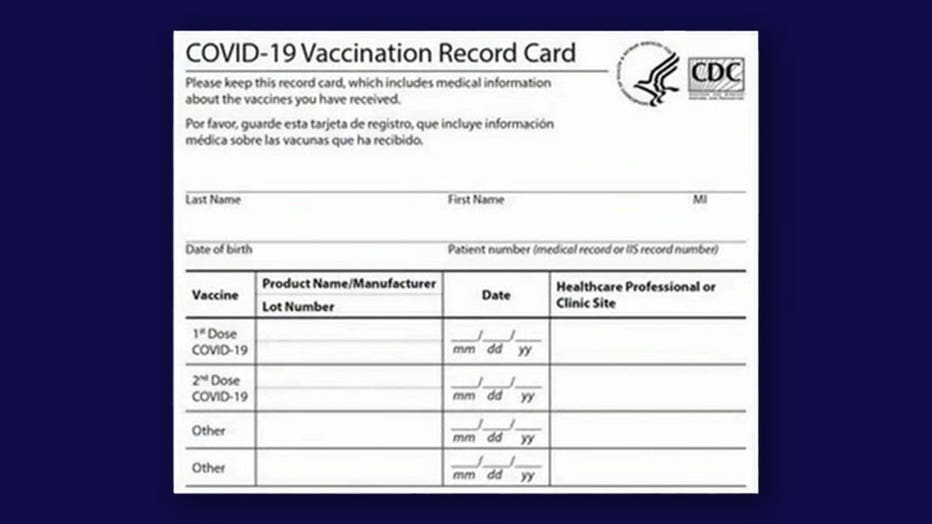COVID-19 vaccine scams are on the rise, health officials warn: What to look out for
LOS ANGELES - With demand on the rise for COVID-19 vaccines, Los Angeles County is warning residents that scams relating to the shots are also on the rise.
"If someone offers to sell you an appointment to be vaccinated, it's a scam," Dr. Paul Simon, chief science officer for the county Department of Public Health warned on Friday. "If someone offers to sell you a vaccine, get you a low-cost deal or get your vaccine under the table, again, it's a scam."
He said the Federal Trade Commission (FTC) is now warning of scams involving purported online surveys about the vaccine.
Get your top stories delivered daily! Sign up for FOX 11’s Fast 5 newsletter. And, get breaking news alerts in the FOX 11 News app. Download for iOS or Android.
"People across the country are reporting getting emails and texts asking them to complete a time-limited survey about the Pfizer, Moderna or AstraZeneca vaccine," he said. "And in exchange people are offered a free reward but asked to pay shipping fees. No legitimate surveys about the COVID-19 vaccine will ask for your credit card or bank account number to pay for a free reward."
RELATED: Don't share COVID-19 vaccine card on social media, BBB warns
Simon reminded residents that the COVID-19 vaccine is free to everyone when it's your turn, and will soon be eligible to everyone 16 and older in California. No one needs to purchase a vaccination card for travel or other reasons.
When you get your vaccination, you should get a white COVID-19 Vaccination Card that shows your personal information, the date you received your vaccination, which type of vaccine you received including the lot number.

If someone offers to sell you a vaccination card at a cost, it's a scam.
LA County officials said to look out for these red flags or warning signs that something might be a scam:
- You are contacted and asked to respond straight away with your personal or financial information. This might be your Social Security, bank account or credit card number, Medi-Cal or Medicare details. NEVER share these or other personal information.
- You receive an offer to buy a vaccine, and have it mailed to you. There are no "secret" sources of a vaccine that can be purchased. If anything is sent, it will not be the real vaccine.
- You see ads for fake vaccines or "miracle cures" using vitamins or other dietary supplements. Scammers promote these even though they have not been proven to work. The FDA has issued warning letters to many companies for selling products that claim to prevent, treat, or cure COVID-19.
Across the country, below is a warning from FTC on red flags to keep an eye out for*:
- Learn how to tell the difference between a real contact tracer and a scammer. Legitimate tracers need health information, not money or personal financial information.
- Don’t respond to texts, emails or calls about checks from the government. Here’s what you need to know.
- Ignore offers for vaccinations and miracle treatments or cures. Scammers are selling products to treat or prevent COVID-19 without proof that they work.
- Be wary of ads for test kits. Many test kits being advertised have not been approved by the FDA, and aren’t necessarily accurate. Almost all authorized home tests don’t provide rapid results and require you to send a test sample to a lab for analysis.
- Hang up on robocalls. Scammers are using illegal robocalls to pitch everything from low-priced health insurance to work-at-home schemes.
- Watch for emails claiming to be from the CDC or WHO. Use sites like coronavirus.gov and usa.gov/coronavirus to get the latest information. And don’t click on links from sources you don’t know.
- Do your homework when it comes to donations. Never donate in cash, by gift card, or by wiring money.
*=information taken from FTC's web page.

